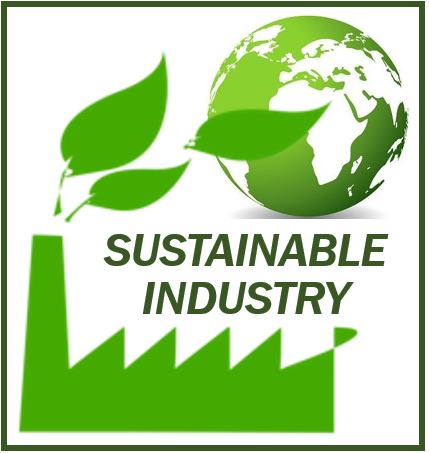So far, 2020 has been a year of profound and unexpected change for many sectors, and industry is no exception. Alongside the more obvious pressures, there’s been ongoing concern about the environment, which has come in the form of a change in attitudes among consumers, and a gradual shift in government policy. According to a study by Imperial College London, air pollution in England alone could top £5.3 billion by 2035.

So what steps can your business take to reverse this trend? Let’s have a look.
Perform an Energy Audit
To eliminate wasted energy, it’s vital that you first establish where those sources of waste are. You can do this by bringing in an independent outside auditor to assess your energy spending. Similarly, you might bring in an outside pollution-control specialist like ERG to look at the amount of air pollution you’re putting out.
Form a Recycling Policy
Your staff should have a clear idea of which items can be recycled and which can’t. Formalise a recycling policy, and implement the procedures that’ll ensure that everything that can be recycled, is recycled.
Incentivise Carpooling
By having employees travel to work in twos, threes and fours, you can slash the environmental cost of them travelling to your workplace – which should be viewed as indistinguishable from the ones imposed directly by your business’s activities. You can encourage carpooling by simply putting up a sign-up sheet in a high-traffic place, like beside the water-cooler.
By the same token, commuters who walk or cycle to work will pollute even less than those who carpool, and they’ll also improve their overall health in the process. If your business has the capability, you might also consider allowing employees to work from home, thereby eliminating the costs of transport altogether.
Invest in Alternative Energy

Certain kinds of alternative energy generation, like photovoltaic solar panels and heat pumps, can appreciably reduce the amount of energy you’re using overall. If sunlight is hitting the roof of your office, then why not put it to good use, as you would any other asset.
Replace Appliances
Newer appliances tend to be far more energy efficient than older ones. In some cases, you might be able to save by moving older stuff out ahead of time. A good example might be LED light bulbs, which tend to repay the investment within a few months, depending on what you’re upgrading from.
Seek out Green Suppliers
Making changes in your own way of doing things is all very well and good. But you can also exert power on your suppliers, and thereby spread green practices across the wider economy. Your customers, whether they’re other businesses or the end consumer, will be increasingly eager to hear about the steps you’ve taken to ensure greenness in your own practices, so don’t be afraid to ask the same questions of them.
Make the Change Cultural
If your employees see your green policies as a series of obligations they need to deal with, then they’ll be that much less likely to stick with them in the long-term. Instead, get them to buy into a self-reinforcing culture, by getting across not only what’s expected of them, but why.
Interesting related article: “What is Renewable Energy?“

